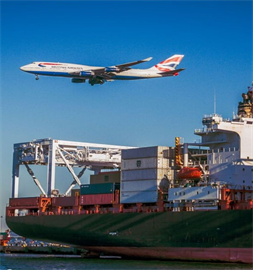- By TOP CHINA FREIGHT
- April 16, 2020
- Transport
In today’s interconnected world, air transport is a fundamental pillar of international travel and trade. This article delves into the complex world of air transportation, highlighting its crucial role in connecting a diverse range of countries and regions.

The Global Network of Air Travel
Air transport is essential for global connectivity, creating a vast network of flights that link nations and continents. From bustling economic centers to remote regions once considered inaccessible, airlines now connect a wide array of destinations. This article examines how air travel integrates different parts of the world, facilitating easier access and greater connectivity.
Enhancing Trade and Tourism
Air transport is not just about moving passengers; it is a key driver of global trade and tourism. Airlines play a significant role in transporting goods and people, which supports economic growth and cultural exchange. This section explores how air transport fosters international collaboration, boosts industries, and opens up new opportunities for travel and commerce.
Challenges in International Air Transport
Despite its benefits, the air transport industry faces several unique challenges:
- Regulatory Complexities: Navigating different countries’ aviation regulations.
- Airspace Management: Coordinating flights across diverse airspaces.
- Safety Protocols: Ensuring consistent safety measures globally.
Understanding and addressing these challenges is vital for maintaining the efficiency and safety of international air travel.
Technological Advancements in Aviation
Technology has revolutionized the aviation industry, bringing significant improvements:
- Fuel-Efficient Aircraft: Reducing operational costs and emissions.
- Advanced Air Traffic Management: Enhancing flight safety and efficiency.
- Innovative Safety Systems: Increasing the reliability of air transport.
This article highlights how these technological innovations make air travel more accessible, reliable, and sustainable.
Environmental Impact and Sustainable Practices
With growing environmental concerns, the aviation industry is adopting greener practices:
- Sustainable Aviation Fuels: Reducing carbon emissions.
- Fuel-Efficient Fleets: Lowering the environmental impact of flights.
- Eco-Friendly Initiatives: Implementing practices to minimize the carbon footprint.
Balancing the need for global connectivity with environmental responsibility is a central focus in the evolution of air transport.
Conclusion: The Pivotal Role of Air Transport
“The Importance of Air Transport in Connecting Global Destinations” underscores how air travel is crucial for bridging various countries and fostering global engagement. As technology advances and environmental challenges are addressed, the role of air transport in shaping international trade, tourism, and cultural exchange becomes even more significant.
